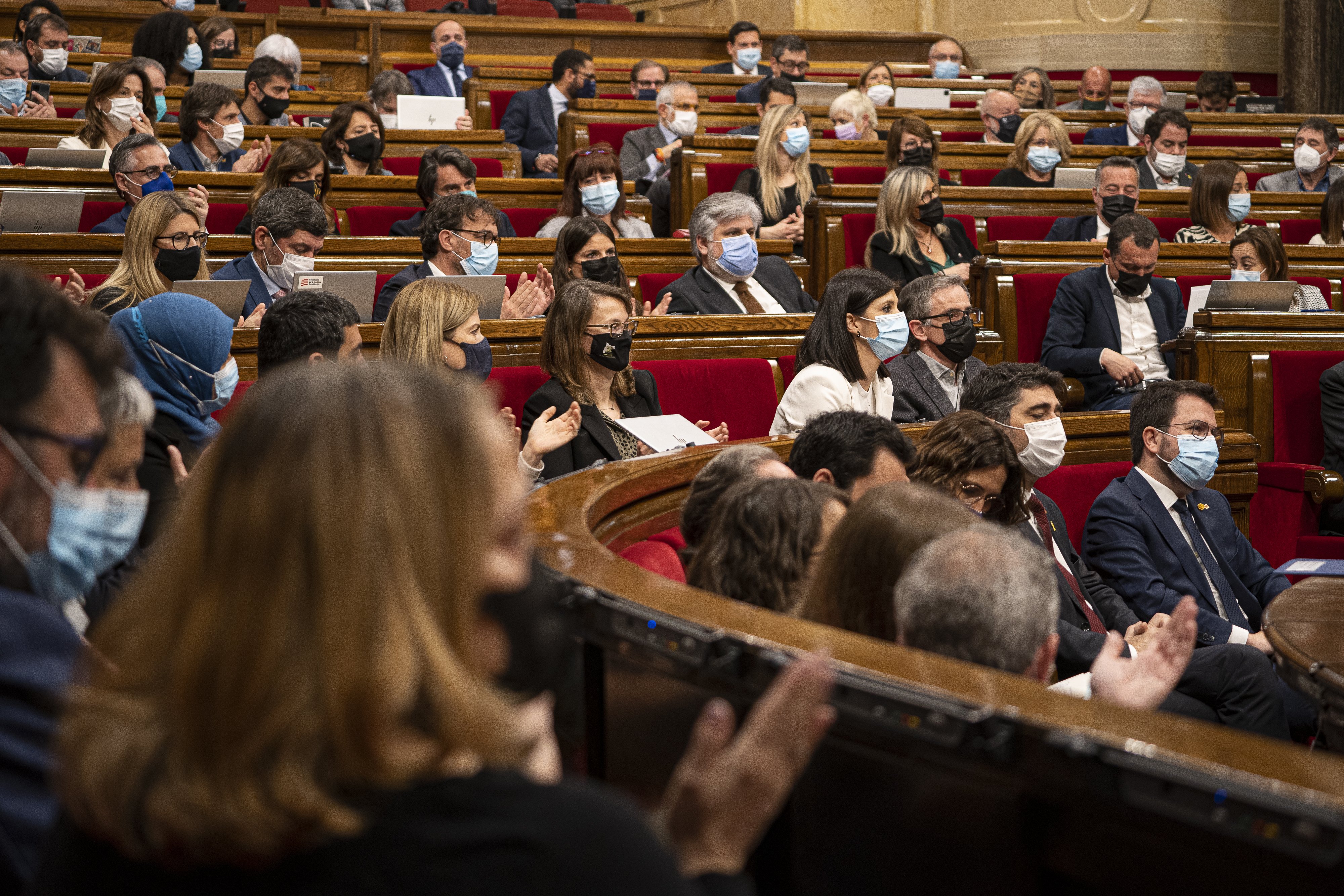A parliamentary offensive. With two weeks having gone by since the emergence of Catalangate, the massive cyberespionage operation that is known to have affected at least 65 people linked to the independence movement, nothing has yet been clarified. In fact, today Spain's Congress of Deputies has torpedoed the attempt to open a commission of inquiry in the Spanish chamber to clarify the facts, despite the fact that yesterday it was reported that the Spanish prime minister, Pedro Sánchez, and the defence minister, Margarita Robles, were also victims of intrusion and information theft using the same software. Faced with Madrid's refusal, the Catalan parties have not stood idly by: the three pro-independence parties, ERC, Junts, and the CUP, along with the left-wing Comuns have announced today that they will open a commission of inquiry in the Parliament of Catalonia in order to clarify the facts of Catalangate.
The motion for a resolution was registered jointly, and, based on Parliament's rules of procedure, it is centred on the espionage suffered by the independence movement and people linked to it. The four parties released a joint statement in which they explain and justify the decision. "Since the [Spanish] Congress, through the votes of the PP, the PSOE, Vox and Cs, has vetoed a commission of inquiry into espionage, the four parliamentary groups consider that the Parliament of Catalonia cannot remain impassive given the seriousness of the facts, which directly attack fundamental rights. They therefore defend the obligation to protect political representatives and citizens, who have also been indirectly spied on and, as a result, have had their rights to privacy and secrecy of communications, among other rights, violated," the text reads.
The aim of the commission of inquiry will be to find out the details of these intrusions by the state through the CNI or other public bodies. In addition, it will seek to clarify the details of the organic and technical structures attached to the Spanish ministries of defence, interior, foreign affairs, the presidency, the economic vice presidency and justice that have participated, directly or indirectly, in monitoring and control of those affected and to clarify the time frame involved. And not only that, it will try to determine the decision makers behind the espionage and their motivation. In order to clarify the case, the commission also intends to reveal the contracting processes or whether there was judicial oversight, as well as finding out the investigative procedures or other actions being set in action by the European Parliament.
One year duration, with major figures to appear
With regard to the formalities, the organ will be able to take the legislative and judicial actions that are pertinent in view of its conclusions, and, if the case arises, demand the appropriate political, criminal or civil accountability, something that the pro-independence parties and the Comuns have called for on numerous occasions during these last two weeks. The commission will be active for one year, will draw up a final report and prepare a set of conclusions which will be duly debated by a plenary session of Parliament. In addition, it will be made up of two members of each parliamentary group and is expected to be attended by experts, political leaders, civil servants and senior officials of the Spanish state administration, specialists, members of civil organizations and other representatives which might be considered of interest and which could provide significant information for the investigation.
Rejected by the PSOE in Congress
Just two days after Catalangate became known to the public, on April 20th, ten parties in the Spanish Congress, from Unidas Podem to the pro-independence, nationalist and sovereignist parties, registered a request for a commission of inquiry in the lower house to investigate the massive espionage operation. The request for a commission was signed by the spokespeople of Unidas Podemos and the Comuns, ERC, Junts, PDeCAT, CUP, PNB, EH Bildu, BNG, Más País and Compromís. And they demanded that "the espionage and intrusion into privacy through the Pegasus and Candiru malware against political leaders, activists, lawyers, institutions and their families be investigated."
But it will not happen, because once again the pincer action of the PSOE, the PP, Ciudadanos and Vox has imposed its blockade in the Congress of Deputies. This Tuesday, the board of party spokespeople for the Spanish lower house vetoed this commission of inquiry into espionage against some 65 people, mostly Catalans. The only action that was approved, by a majority decision of the party spokespeople, was a demand for prime minister Pedro Sánchez to appear before the plenary of Congress to give explanations over the Pegasus case, at the request of the same groups. The date is yet to be determined.

